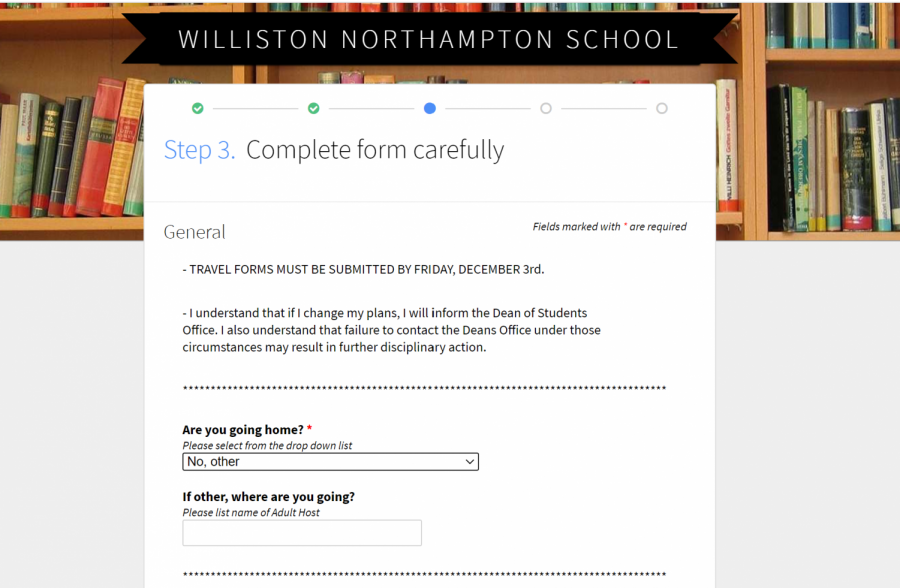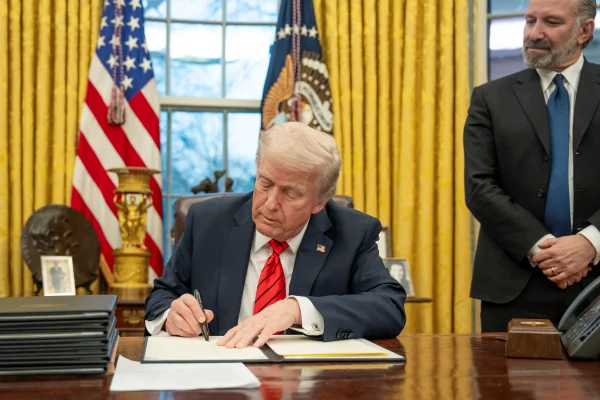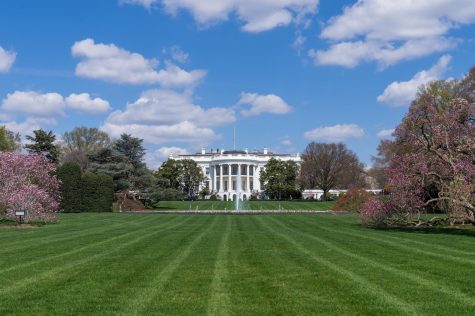Travel Plans Amidst Another Covid Variant
With winter break on the horizon an increasing Omicron cases around the globe, Williston students face the uncertainty of borders potentially closing and stricter travel measures.
Although several countries have relaxed their Covid measures, restrictions have recently been put into action as the world deals with the new Covid variant, Omicron. While some students will likely be able to travel with no problem, some others have been left with no choice but to spend the holidays away from home.
Anita Hua, four year senior from Shanghai, China, shared that even as the new variant Omicron has not yet reached mainland China, strict restrictions are held in place. She would love to travel home but will not be able because of a mandatory quarantine inflicted on travelers.
“If we want to enter, we must quarantine for two weeks in a hotel,” she said. “That is actually the bulk of my time so I don’t want to spend it quarantining.”
With important Chinese holidays approaching, Anita is feeling nostalgic about being away from home.
“It is always a good time to be back because New Year celebrations mean a lot to my country, being together with family is very important.” She said.
Anita was also a late returner for the past school year, since travel from her home country, China, to the United States, was restricted. Prior to her arival, she first had to quarantine in Cambodia, where she took multiple Covid tests, and then stopped in Korea for further testing. Once on campus, she had to quarantine for yet another week. In total, it took 21 days for Anita to leave China and set foot in a Williston classroom.
As of the past month, Germany has announced a mandatory lockdown for the unvaccinated, while U.S. travelers must undergo testing upon arrival to a number of countries such as Japan and Canada.
China, Spain, Taiwan, and many others have reinforced their quarantine measures on travelers that first arrive to the country. Israel has announced that as of November 28, all foreigners are banned from entering the country, due to the new Omicron variant.
Vasu Jain, a senior from Tokyo, Japan, told The Willistonian about the complications that have arisen due to recent constraints upheld by the government, rising doubts regarding his travel plans for the upcoming break.
“It is complicated. Although I have a ticket to go back to Japan, I might not go back as there is a two week quarantine. That means I [would] only get two days free,” he said.
“Japan is a very strict country, ” Vasu added. “[Measures are] getting stricter day by day.”
Vasu ’22, also explained that rooting from the recent worldwide spread of the Omicron variant, measures in Japan have become even more rigorous. Quarantine time has increased, while the use of apps and daily phone calls to monitor individuals in isolation continues.
While there has only been a single case recorded in the whole country, measures are starting to be taken to prevent spread. Similarly, Delta variant cases have considerably decreased recently, and the country has reached an all time low in deaths in the past 16 months.
Angela Tsai, a four year senior from Taipei, Taiwan, is also not traveling home for winter break. Even though she will be able to see her family, she misses other aspects of home.
“I miss my friends, my grandparents, my pet, and basically just the food and the street view. I hate not being able to go back,” Angela said. “I would definitely want to go back if there were no restrictions.”
Coraly Seigel, a first-year junior from Hamburg, Germany, demonstrated a more optimistic outlook on set restrictions; despite being unable to see her family, she is eager to encounter new experiences by staying in the U.S. She will be spending the holidays with her roommate, Charlotte Carr ’23 in Hingham, Mass.
“Since I am already here, I want to do stuff around, and explore my surroundings. Why go home? I already know home, I have been living there my whole life,” she said.
Despite strong limitations, students predict further tightening of existent rules.
“I feel like we are going to have more rules in the upcoming month,” Anita said.
“Because of this new variant I feel like there’s many Covid restrictions to be implemented that we are not yet aware about,” Praghya Athvan Raja, from Saudi Arabia, said.
While some students are unable to travel to their home countries because of tight restrictions, some others will be going back, their countries having recently loosened measures.
Lorenzo Redaelli, a senior from Milan, Italy, is looking forward to traveling back for Winter break and spending the holidays with family and friends. At the moment, Italy is receiving visitors from all over the world with different restrictions depending on the place of origin. Incomers are required to show proof of a negative Covid test even if they are already vaccinated. While, if they have chosen to remain unvaccinated, a mandatory five day quarantine must be completed.
Recently, Europe has faced a noticeable spike in cases: since January 1, 387,182 new infections have been reported as of December 7. Germany, France, and the United Kingdom with the greatest number of cases and increasing.
Praghya Raja will be able to go home to Saudi Arabia, with only five days of quarantine, since cases have decreased since September 6. As a result, traveling restrictions have been reduced, only banning arrivals from some regions.
Daniela Braverman, from Mexico City, Mexico, will not need any quarantine upon arrival. With almost 20,000 cases on a national scale as of December 7, the country has opened its boarders for travelers, and few restrictions are currently in place.











